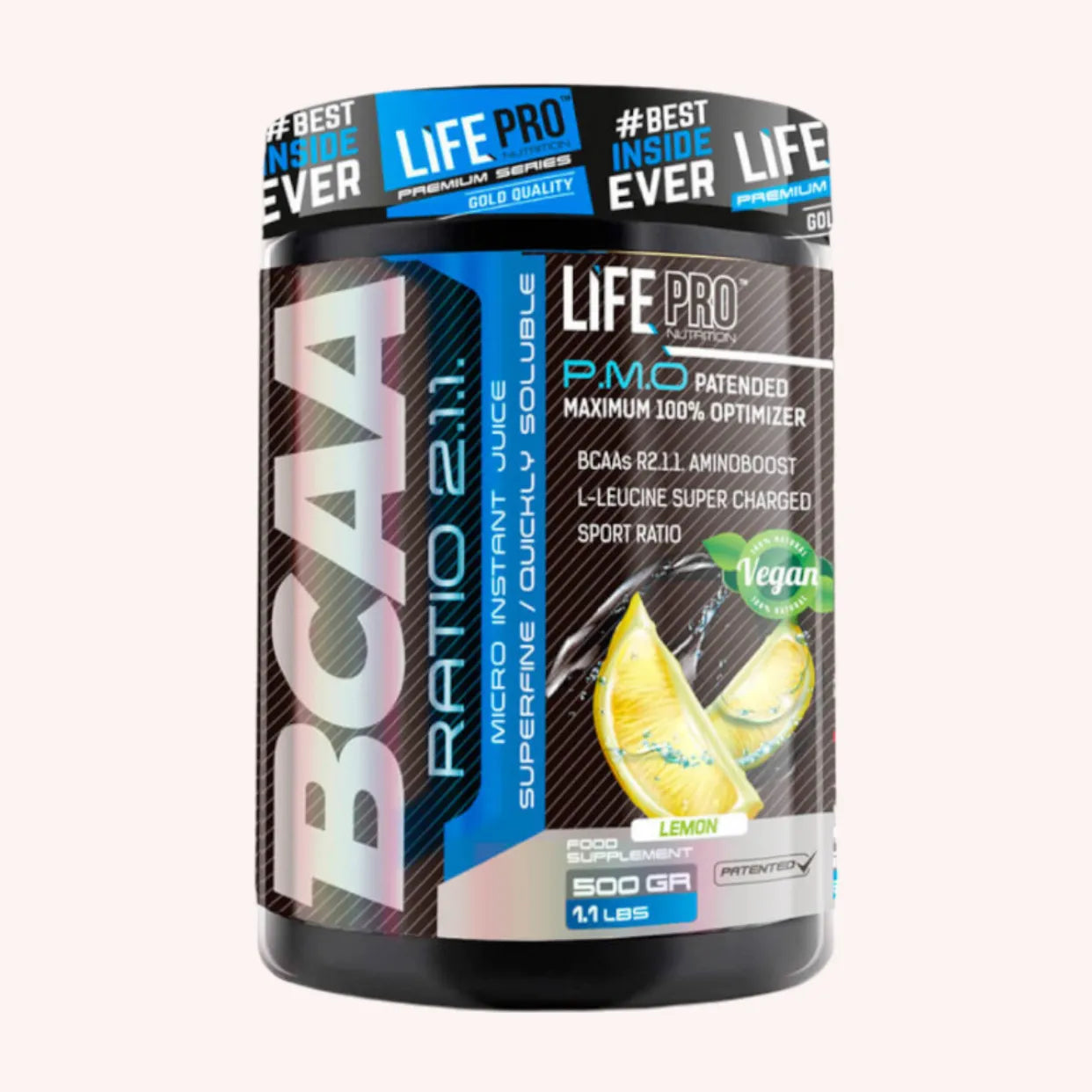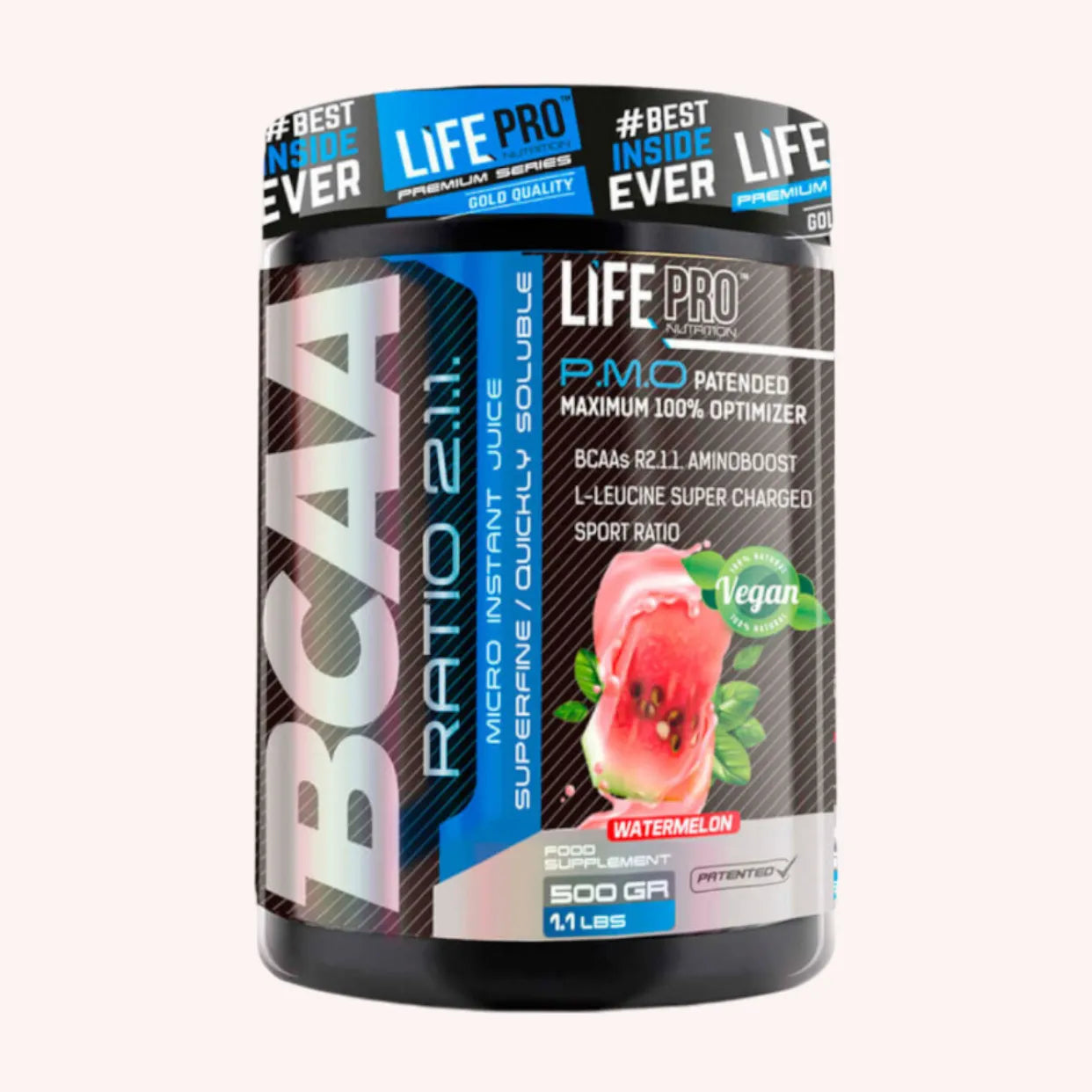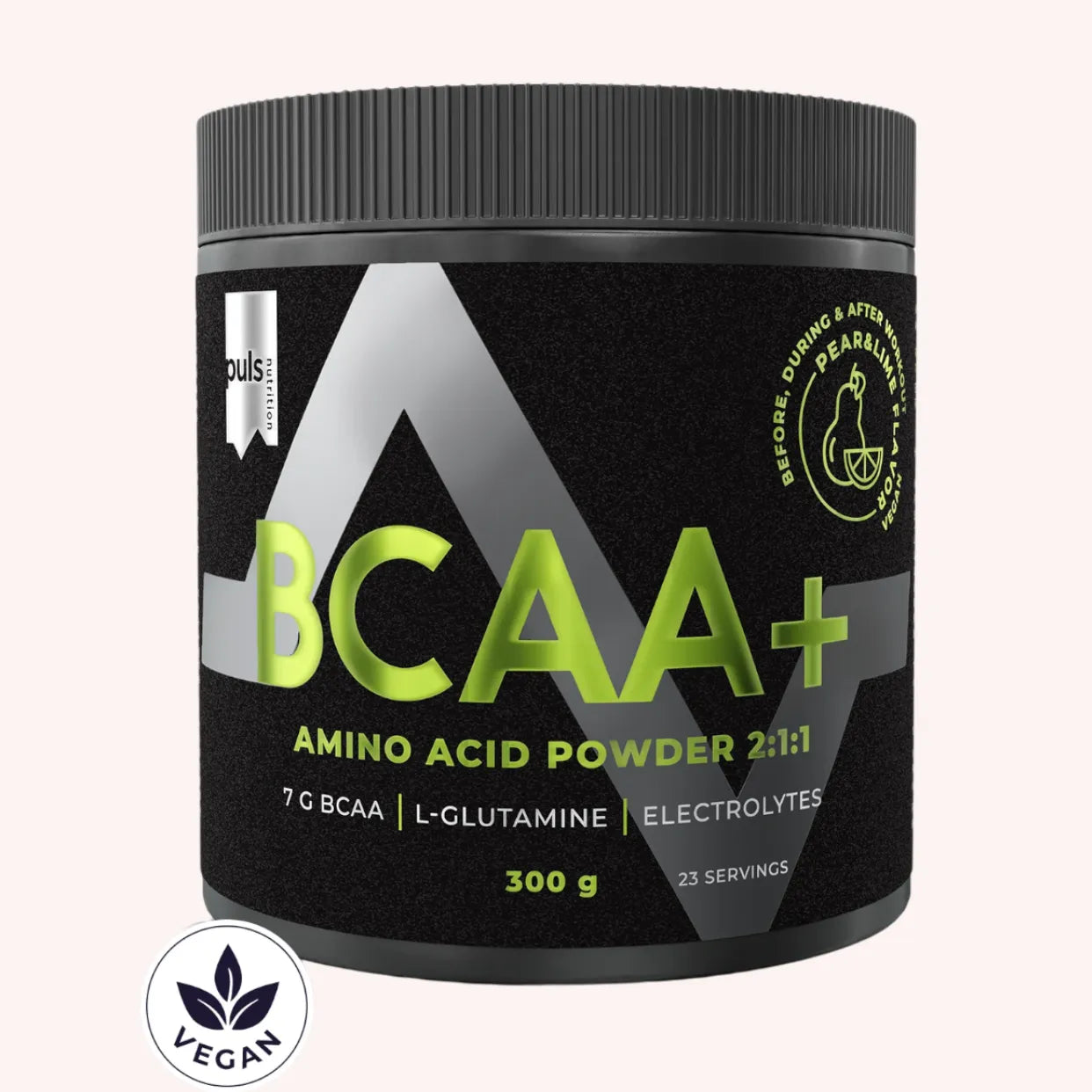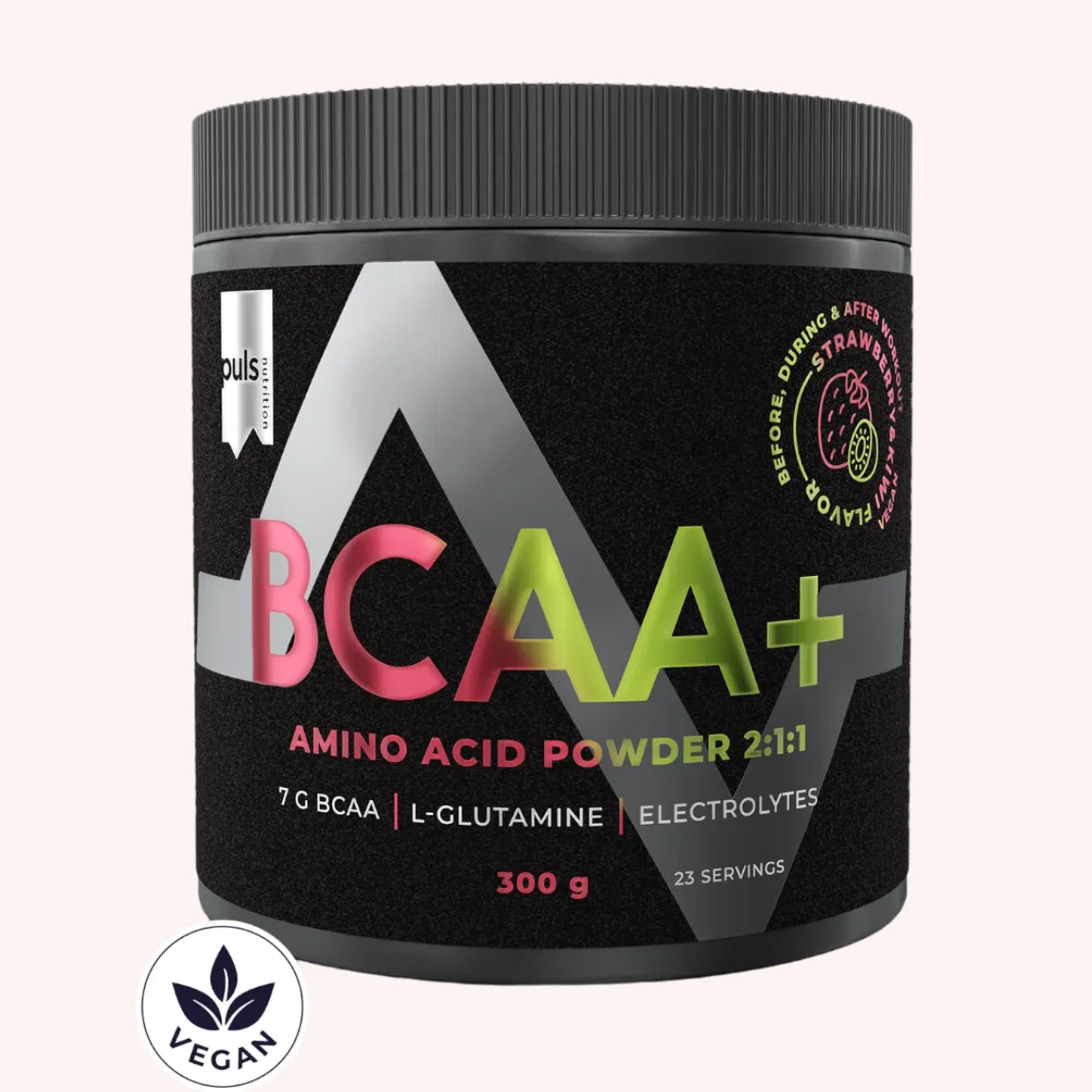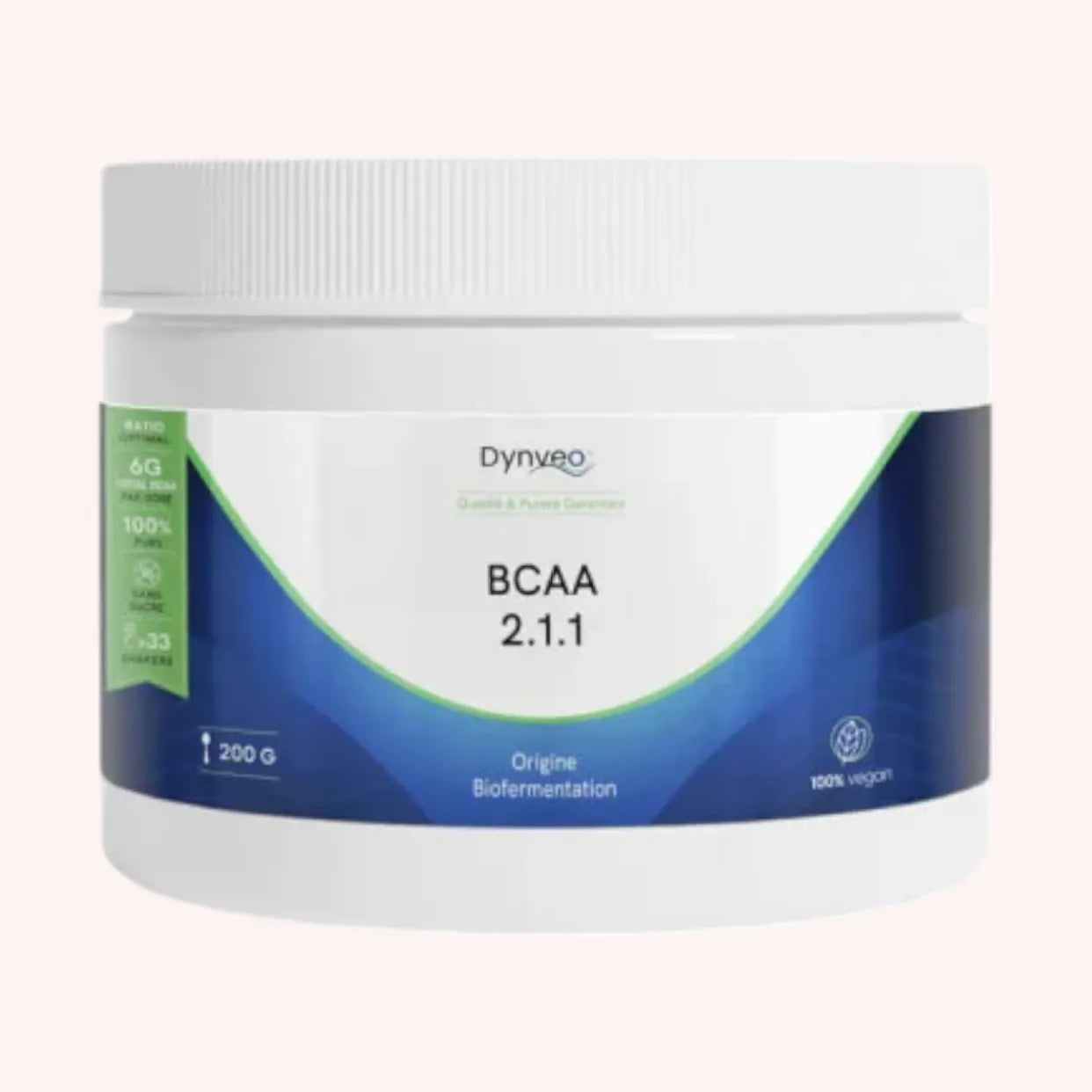BCAAs , branched-chain amino acids, are among the most popular sports supplements . Highly valued by bodybuilders and athletes seeking peak performance, they help support recovery, prevent muscle breakdown and improve endurance .
However, their effectiveness largely depends on when they are consumed. Here, we'll explain when to take BCAAs to maximize their benefits and meet your needs.
What is BCAA?
BCAAs are a group of three essential amino acids : leucine , isoleucine , and valine . Since the body cannot produce them itself, it is essential to obtain them through diet or appropriate supplementation. They are distinguished by their ability to be directly absorbed by the muscles without passing through the liver, which makes them a particularly effective sports food supplement .
These amino acids participate in protein synthesis and the reduction of catabolism ( muscle breakdown ), especially during intensive training.
Why consume BCAAs?
BCAAs are useful in many ways for athletes, especially those involved in intense physical activities such as bodybuilding or endurance sports.
These amino acids, composed of leucine , isoleucine , and valine , act directly on recovery, muscle synthesis, and available energy, making them a leading sports food supplement . Here are the main benefits associated with their consumption.
Muscle recovery support
During training, muscle fibers undergo micro-tears. Without sufficient nutrient intake, these tissues degrade, leading to longer recovery times and potentially muscle soreness. By consuming BCAAs, muscle breakdown is limited during and after exercise , thus accelerating the recovery process. This ability to support muscles is particularly beneficial for athletes who perform intense or close-quarters sessions, limiting the onset of post-exercise muscle soreness and fatigue.
Stimulation of protein synthesis
BCAAs stimulate muscle protein synthesis , particularly thanks to leucine, which is one of the most anabolic amino acids. By increasing the production of new muscle fibers, BCAAs promote the development of muscle mass and optimize athletic progress. This makes them an ideal ally during periods of mass gain , when muscles are regularly called upon to increase strength and volume.
Reduction of fatigue
During prolonged exercise, the body produces serotonin , a hormone involved in the feeling of fatigue. By consuming BCAAs during training, it is possible to slow down the production of this hormone, which delays the onset of fatigue and improves endurance . This intake helps maintain a good energy level during long or intensive sessions and optimizes overall performance.
Preservation of muscle mass during the drying period
BCAA consumption is particularly strategic during a cutting period , where the goal is to reduce body fat without losing muscle. Due to the reduction in caloric and carbohydrate intake, the risk of catabolism increases, which means the body can draw on muscle stores for energy. What are BCAAs? A key tool in these moments: They preserve lean mass while facilitating fat burning. In this way, athletes can maximize their muscle definition without compromising their strength gains.
When to take BCAAs for maximum effectiveness?
Before training
Taking BCAAs before your workout helps maximize your energy reserves and reduce muscle breakdown in the first few minutes of exercise. This is especially helpful if you're training on an empty stomach, such as during a morning session. Without sufficient energy, your body could tap into its muscle reserves. Consuming 5g of BCAAs 20 to 30 minutes before training ensures optimal intake and prevents catabolism.
During training
BCAAs are also useful for intra-workout training, especially during long, intense sessions. Taking them during exercise helps conserve muscle glycogen , which improves endurance and delays the onset of fatigue. By incorporating BCAAs into your workout drink, you keep your muscles fueled, thus increasing your performance. This strategy is particularly popular during endurance training or prolonged efforts.
After training
After a strength training session, muscles are weakened and show micro-tears. Taking BCAAs within an hour immediately kick-starts the recovery process and promotes muscle fiber repair. This stimulates anabolism and reduces muscle soreness. Combining BCAAs with carbohydrates and protein powder further optimizes your post-workout recovery.
Should you take BCAAs on rest days?
Rest days , although free from training, remain important for muscle regeneration. Consuming BCAAs on these days can be useful, especially if your protein intake is insufficient. They help support protein synthesis and limit muscle loss, especially during cutting periods when the body tends to lose muscle. In this case, it is recommended to spread your BCAA intake throughout the day, in addition to your meals.
BCAA and drying: An effective combination
BCAAs are essential allies during a cutting phase . By reducing carbohydrate and fat intake, the body risks breaking down muscle for energy. Consuming BCAAs before and after your meals helps maintain lean mass while promoting fat loss. BCAAs are therefore a major asset for achieving a well-balanced mass gain and cut .
Are BCAAs safe?
While BCAAs are generally well tolerated, it's important to stick to the recommended dosages. Taking more than 15g per day offers no additional benefits and may interfere with the absorption of other amino acids. Additionally, excessive BCAA consumption can cause minor side effects, such as nausea or digestive upset. It's advisable to follow nutritional recommendations tailored to your weight and activity level to avoid any BCAA hazards.
How to choose the right BCAA ratio?
BCAAs are available in different ratios: 2:1:1, 4:1:1, or 8:1:1. The first number indicates the proportion of leucine, the most important amino acid for protein synthesis. A 2:1:1 ratio is often sufficient for most athletes, while a higher ratio can be beneficial during intense training or cutting phases. Whichever you choose, make sure you choose a quality product to ensure optimal results.
In what form should BCAAs be consumed?
BCAAs come in several forms:
- Powder: Ideal for preparing a drink to drink before, during or after training.
- Tablets or capsules: Convenient to transport and consume, especially before exercise or when traveling.
- Liquids: Less common, but sometimes included in intra-workout drinks
Combine BCAA and Whey for best results
To maximize the effects of BCAAs, it is recommended to combine them with a protein powder such as Whey. This combination guarantees a complete intake of amino acids, essential for muscle recovery and growth . Taking a Whey shake after training, enriched with BCAAs, allows you to get the most out of your session and accelerate the muscle regeneration process.
The perfect time to take your BCAAs
To fully benefit from the benefits of BCAAs , it is essential to consume them at the right time. Before, during and after training are the most strategic moments to maximize their effects. During rest or cutting periods, taking them spread out throughout the day helps maintain muscle mass and improve recovery . BCAAs are not a substitute for a balanced diet but fit perfectly into a well-planned sports supplement routine.
Whether you're bulking up, cutting , or simply looking for better recovery, BCAAs are a valuable asset to help you achieve your fitness goals.
Sources:
- Nie C., He T., Zhang W., Zhang G., Ma X. – Branched-Chain Amino Acids : Beyond Nutrition Metabolism. International Journal of Molecular Sciences, 2018. DOI: 10.3390/ijms19040954. : https://pubmed.ncbi.nlm.nih.gov/29570613/
- Shimomura Y., Murakami T., Nakai N., Nagasaki M., Harris RA – Exercise promotes BCAA catabolism : Effects of BCAA supplementation on skeletal muscle during exercise . Journal of Nutrition, 2004. DOI: 10.1093/jn/134.6.1583S. : https://pubmed.ncbi.nlm.nih.gov/15173434/
- Plotkin DL, Delcastillo K., Van Every DW, Tipton KD, Aragon AA, Schoenfeld BJ – Isolated Leucine and Branched-Chain Amino Acid Supplementation for Enhancing Muscular Strength and Hypertrophy: A Narrative Review. International Journal of Sport Nutrition and Exercise Metabolism, 2021. DOI: 10.1123/ijsnem.2020-0356. : https://pubmed.ncbi.nlm.nih.gov/33741748/
- Ra, S.G., Miyazaki, T., Kojima, R., Komine, S., et al. – Effect of BCAA supplement timing on exercise-induced muscle soreness and damage: A pilot placebo-controlled double-blind study. PubMed, 2018 .: https://pubmed.ncbi.nlm.nih.gov/28944645/
- Dudgeon WD, Kelley EP, Scheett TP – Branched-chain amino acid supplementation and resistance training maintains lean body mass during a caloric restricted diet. Journal of the International Society of Sports Nutrition, 2016. DOI: 10.1186/s12970-016-0148-4. : https://pubmed.ncbi.nlm.nih.gov/26733764/





